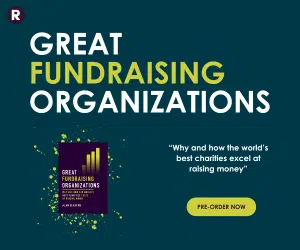We cannot fundraise alone
For our fundraising teams 2013 has already been a year of tremendous learning. But the biggest, conclusive, insight so far is this:
We cannot fundraise alone.
The outcomes of the Great Fundraising report we commissioned earlier this year from Professors Sargeant and Shang are backed up by the experiences we have gained with clients over the last year. From these it’s crystal clear that for fundraising to grow rapidly and perform as it should, fundraising needs to be accepted, encouraged and owned by the entire organisation. Great fundraising organisations have staff and volunteers throughout all departments that are proud of their fundraising programme. So they should be.
Advertisement
Many organisations consistently fail to achieve this, in three distinct ways:
Lack of understanding
We showed a very senior board of trustees a graph that showed that investment in fundraising produces up to five times the return their reserves were gaining in equity funds. They were astonished. They very quickly released reserves for fundraising investment. Until that moment, they simply didn’t know just how much money fundraising could generate when invested in regular giving. They, like many CEOs, trustees or directors had just assumed fundraising was of the old fashioned tin-rattling variety and would never really amount to much.
Delegation of responsibility
When an organisation recognises the need for voluntary funding but finds it a little distasteful or to be of secondary importance, a reluctant necessity, fundraising is often delegated and isolated. In some organisations it is literally shoved into a basement or a separate building. The organisation is effectively saying ‘Just give us the money and stay quiet.’
Deliberate obfuscation
(6) (and Whisper this …) We become better at playing ‘politics’ than our detractors.



